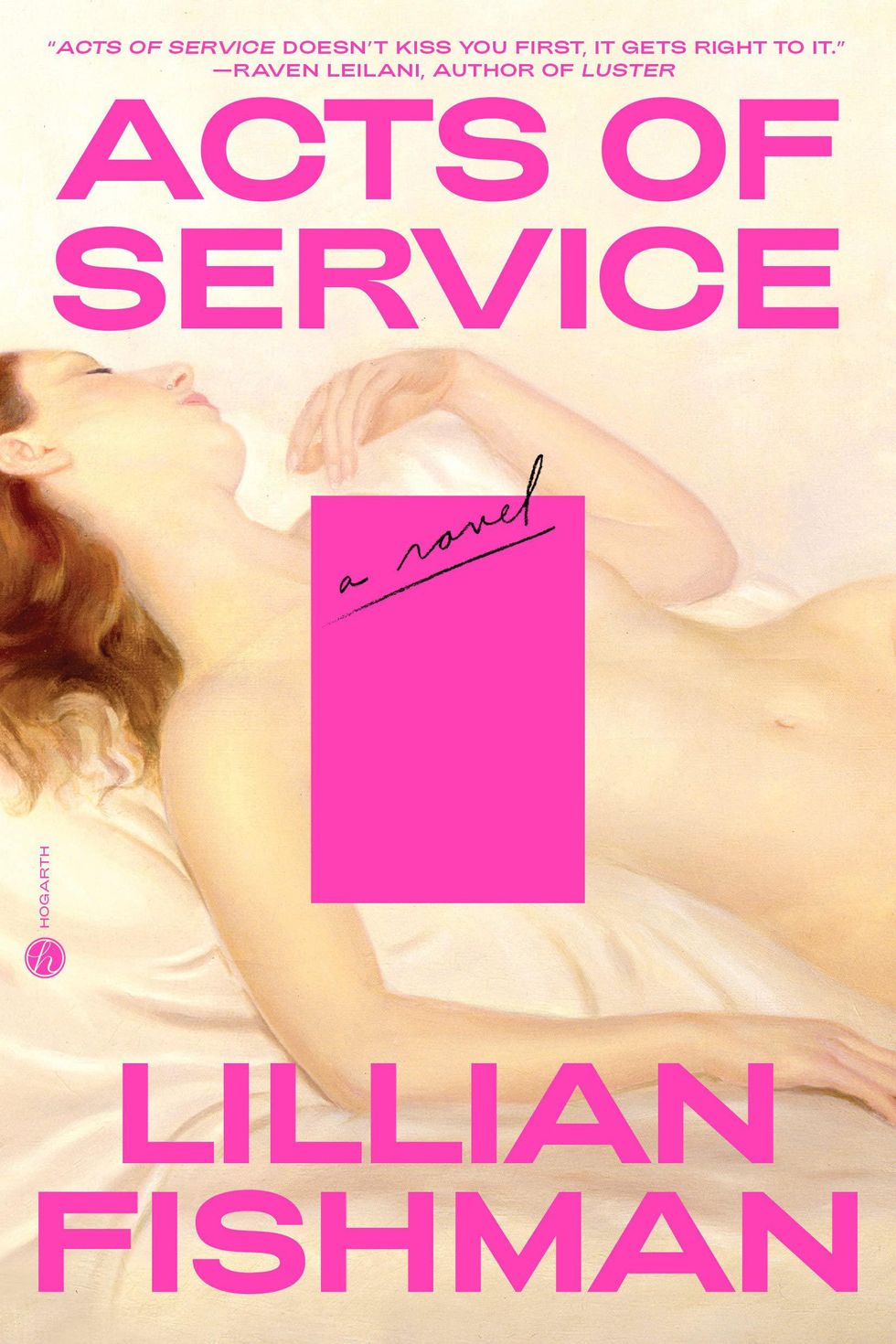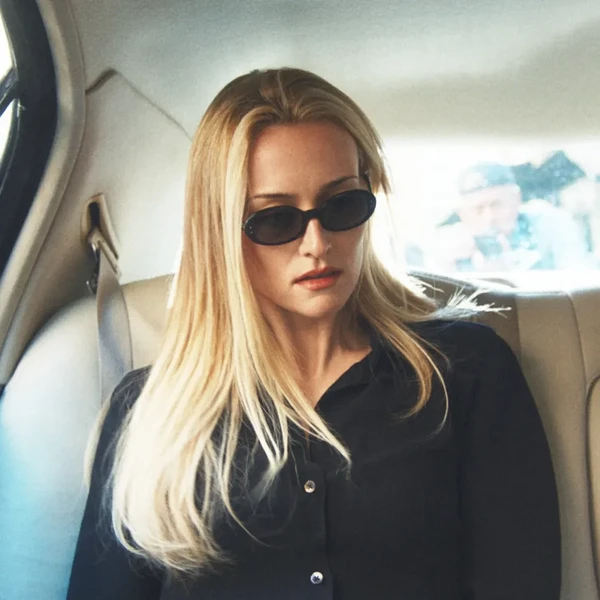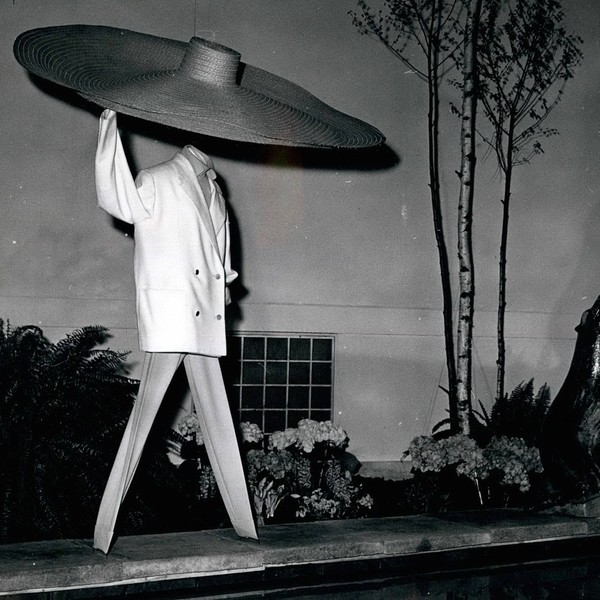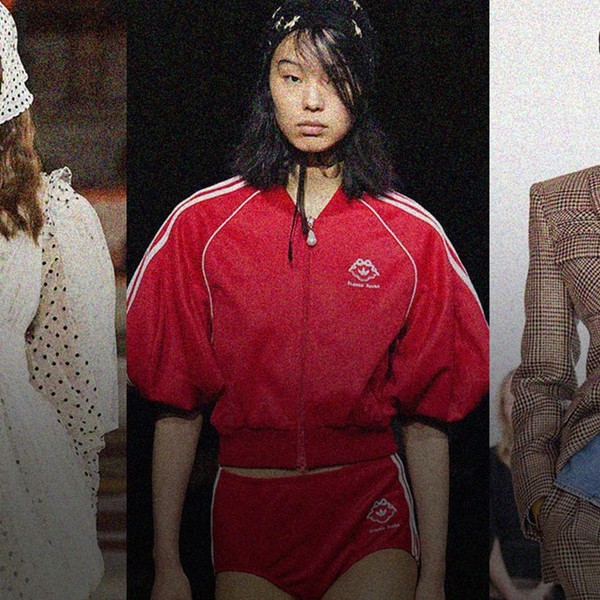'Acts of Service' Unpacks the Politics Around Desire
Lillian Fishman's debut novel raises questions about how we choose to express our sexuality.
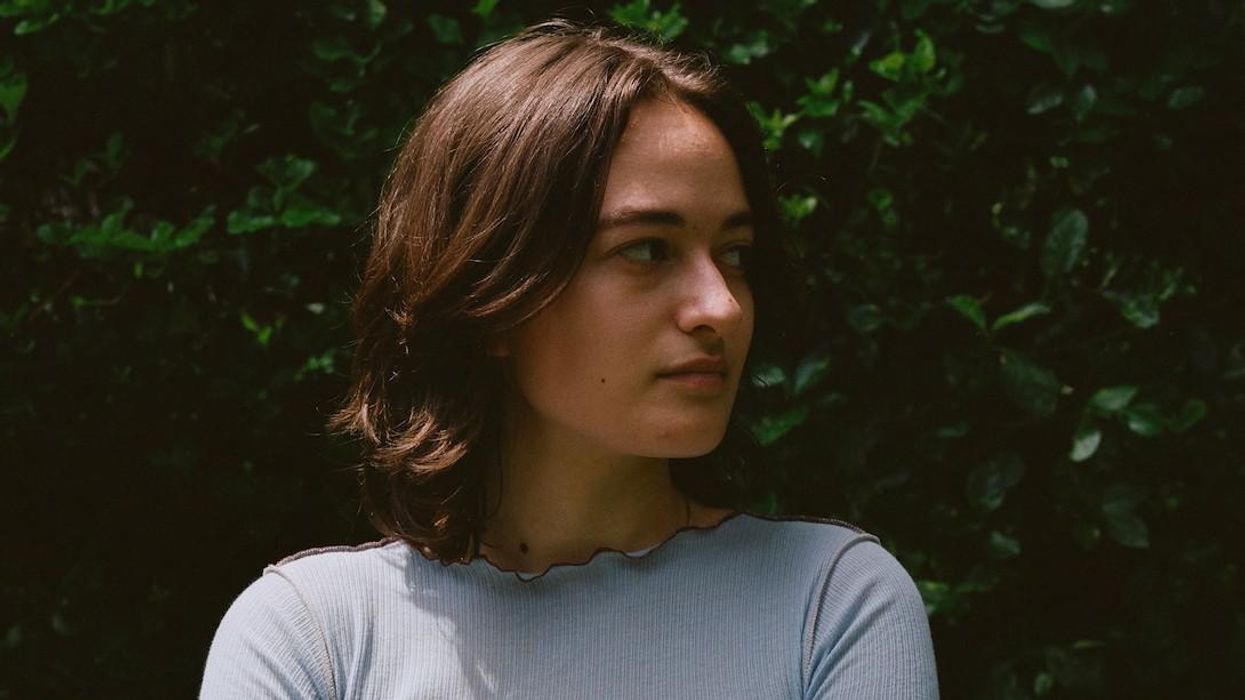
At the beginning of Lillian Fishman’s debut novel Acts of Service (released on May 3, 2022), Eve, the 27-year-old, Brooklyn-dwelling narrator, decides to post nudes on an online message board even though she has a girlfriend. When the photos catch the attention of a woman named Olivia, the two meet up for a drink and Eve learns that Olivia isn’t there just on her own accord; she’s there because Nathan, the man Olivia is currently sleeping with, is interested in Eve. Eve turns the twosome into a threesome, raising questions within herself about power, sexuality, and desire.
In a recent essay for The Sewanee Review, novelist Garth Greenwell writes, “Desire, in its urgent eagerness, disrupts our intentions, but also it can make the whole body a ‘mark,’ so that anywhere one is touched, even fumblingly or confusedly, sparks with rightness.” While some may choose to ignore the reasons behind that spark of ‘rightness,' Eve interrogates her desire for Nathan and tries to unravel the power dynamics behind it. At one point in the novel she asks herself, so I’m supposed to think I can’t damage myself, that things don’t hurt me, if I choose them, if I see them clearly? Isn’t that just the deepest submission to power? Ahead, I spoke with Fishman about the politics around sexuality, the malleability of our desire, and more.
There’s a sentence in the novel that stood out to me: “Over the previous decade I had talked myself all the way from an attraction to women into a political commitment to lesbianism.” I was listening to a podcast recently where they were talking about Cynthia Nixon and how she upset a lot of gay and lesbian activists when she said that, for her, being gay was a choice. I think because we live in such a conservative culture where homosexuality is only permissable if it’s innately who you are, a lot of people saw that statement as a threat to the cause.
"It’s funny you bring this up because I’ve been talking about Cynthia Nixon during my press tour. I was a teenager when this happened and I remember being so shocked by the backlash to that and thinking, why are people so upset? It’s a very complicated topic and there’s so much to say about it, but I think the book engages with a topic that I think about all the time, which is the way queer and trans rights have been framed in the mainstream and the campaign for equality, as we call it. It’s interesting because the marriage equality campaign had been building for a long time when Cynthia Nixon received that backlash; and that campaign was, understandably, built on a civil rights tradition. And the way to campaign for rights given that tradition is to make the argument that you can’t help it, you are who you are. And we’ve seen how that’s now led to trans people needing to 'prove' gender essentialism in order to receive medical care."
I think about that all the time, especially given the recent anti-trans policies in Texas. Gender is a construct anyway, so why not let people express themselves however they want to?
"Yes, it’s so interesting how so many movements have seen that as the only route to get conservative people to realize that this is a human rights issue. I think, in a sense, that the book is the idea that how you express your sexuality is a social choice. Even before the backlash against Cynthia Nixon, there were centuries in which people were queer and chose how to express their sexuality in a very precise way."
I feel like untangling desire and sexuality from politics is a very messy process and that’s something Eve wrestles with throughout the novel.
"I read an amazing article by [philosopher] Amia Srinivasan on the right to sex while I was in the middle of drafting this book and it was really revelatory to me to start thinking about the fact that our sexuality and our sexual choices are structured by social life and our ideas about what kind of person we are and what kind of person we want to be. Basically, it’s structured around different types of bigotry, which we acknowledge when we talk about porn, but don’t touch on when we talk about dating. And mainstream feminism denies that this exists because there’s the idea that anything a woman chooses is fair and just.
That’s what’s going on in Acts of Service because Eve is thinking, how can it be that everything I want is okay and isn’t inflected by capitalism and misogyny?"
It’s interesting, when Eve has conversations with Olivia and Nathan, they don’t spend as much time thinking about the political or social motivations influencing their choices. I think people see sex and dating as a space driven by romance or a subconscious feeling you can’t describe.
"Right, and that it’s beyond analysis because it’s intangible and blameless."
Do you think our desires can be reshaped?
"Yes, definitely. I think the hardest thing about desire and sexuality is exactly what you mentioned, which is the belief that it’s an intangible essence, and if you look too closely, or if you ask yourself where that attraction comes from, you’re going to ruin the mood and destroy the chemistry. It’s not that I don’t believe there’s some truth in that. It’s a really delicate thing to navigate, wanting to understand where this desire comes from, and also not wanting to pollute it. But I do think you can take in any new information and change radically."
There’s another scene in the book that stood out to me; Eve is describing the recurring dream she has where she’s standing naked in a line with several other women and a man picks her out of the lineup. It made me think of how it’s not necessarily the act of having sex with someone that gives us “status,” but it’s the fact that we’re wanted by someone that makes people feel special.
"I think that’s one way of approaching sex and personal value. It’s symptomatic of how young Eve is. I’ve said this to a couple of people since the book came out, but Eve’s 27 years old in the book, and I wish I had made her 20 or 23. I think you can have that type of insecure attachment to your sexual value at any age, it depends on how you’ve been treated among other things, but the way Eve approaches wanting to be valued sexually and physically by men is a very early 20s mentality. I think it’s very separate from sex because it really doesn’t have anything to do with sex at all; it has ore to do with the idea of constantly negotiating what kind of value you have based on your identity cluster."
That reminds me of the Oscar Wilde quote, "Everything in the world is about sex, except for sex. Sex is about power."
"Exactly. I think that when Eve has sex with Nathan, it’s less about the actual sex and more about his relationship to her body and how he values it, and it’s something she needs to unpack to stop worrying about it."
It was really interesting to see Eve interrogating the fact that she was so drawn to Nathan and feeling a bit grossed out about the fact that she was so attracted to him.
"Definitely. Based on her perception of herself, she shouldn’t be attracted to someone like Nathan. For example, the way Olivia treats the relationship is totally unconcerned with the ethical and political anxieties that Eve has. That doesn’t mean she isn’t cognizant about the fact that she’s a white American woman who’s valuable in certain ways, and not in other ways. And she’s a person who reads the news and knows what’s going on in the world. But she’s made a very clear decision about what kind of experience she wants to have and what matters to her. So, I guess you can be an agent of what matters to you or not. As adults, it is, to an extent, up to us how much we want to allow ourselves to be influenced by what we’ve seen and been taught."
Want more stories like this?
The 10 Books We Read—And Loved—This Year
Eloghosa Osunde Isn’t Playing By Your Rules
This Glitzy Debut Novel Delves Into the Power of Charm as Currency

